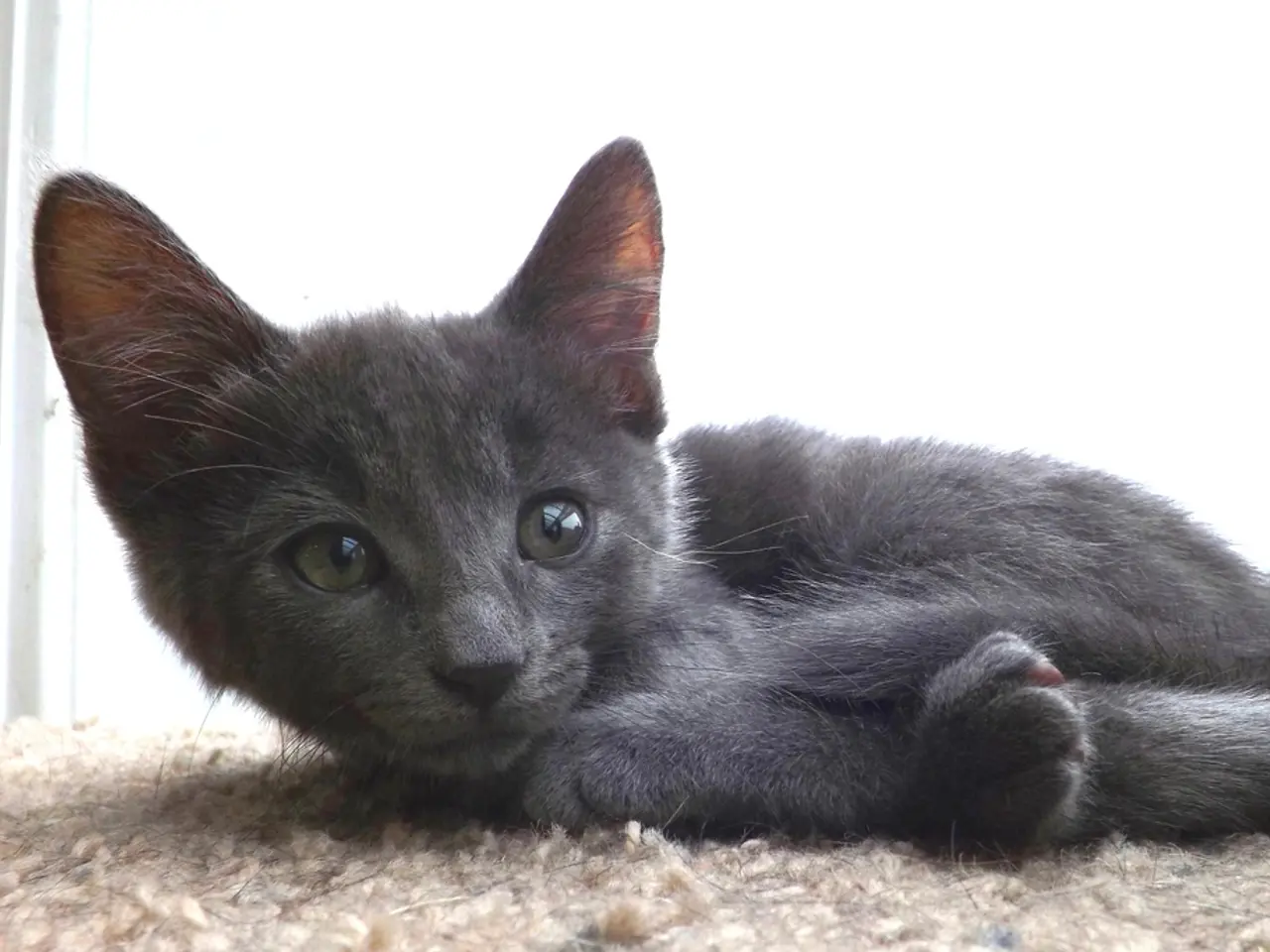Common Feline Ailments: Symptoms and Remedies
Kittens, much like human infants, undergo a rapid transformation in their first year of life. As they grow, they may be susceptible to various health issues. This article aims to provide a clear understanding of common kitten illnesses, their signs, symptoms, and treatments.
Upper Respiratory Infections (URI)
URI in kittens is a common ailment, often caused by viruses like feline herpesvirus or calicivirus. Signs include persistent sneezing, nasal and eye discharge (clear or thick and snotty), coughing, labored breathing, lethargy, loss of appetite, and sometimes fever. These infections can be severe and potentially fatal in very young kittens. Immediate veterinary care is essential. Treatment may include antibiotics for bacterial infections, supportive care such as nutrition and hydration support, and isolation to prevent spread.
Fleas
Fleas are a common problem for kittens, causing itching, skin irritation, hair loss, and in severe infestations, anemia. Fleas also transmit tapeworms and other parasites. Management includes veterinary-prescribed topical or oral flea preventatives such as NexGard COMBO or topical treatments applied to the back of the neck. Regular flea prevention is critical.
Intestinal Parasites (Roundworms, Hookworms, Tapeworms)
These parasites cause weight loss, diarrhea, poor growth, and a dull coat. Roundworms and tapeworms may occasionally appear in vomit or stool, sometimes resembling rice grains (tapeworm segments). Kittens should start deworming at 8 weeks of age. Treatment involves prescription oral dewormers (e.g., Drontal) or topical dewormers (like CENTREGARD). Flea control is indirectly important as fleas can transmit tapeworms.
Ear Mites
Ear mites cause intense itching, dark crusty or waxy ear discharge, and head shaking. Treatment includes veterinarian-prescribed topical or oral anti-parasitic medications specifically targeting mites. Clean the ears carefully as advised by the vet.
Feline Panleukopenia (FPV)
FPV is a severe viral disease causing vomiting, diarrhea (often bloody), dehydration, and immune suppression. It is highly contagious and often fatal in young kittens. There is no cure, but supportive veterinary care (fluids, antibiotics for secondary infections) and preventive vaccination are critical.
Feline Leukemia Virus (FeLV)
FeLV suppresses the immune system and can cause anemia, lymphoma, and other serious illnesses. Kittens may appear lethargic, have recurring infections, or poor body condition. Diagnosis is by veterinary blood tests. There is no cure, but supportive care improves quality of life. Vaccination is available to prevent infection.
General management advice: - Always consult a veterinarian promptly if your kitten shows symptoms like persistent sneezing, discharge, lethargy, loss of appetite, diarrhea, vomiting, or signs of parasites. - Vaccination and preventive treatments are essential to reduce risks of viral diseases and parasite infestations. - Maintain good hygiene and isolate sick kittens to prevent spread.
Navigating kitten illnesses can be stressful, but options like pet insurance and CareCredit credit card can help manage vet expenses. Always remember, prompt veterinary care is crucial for the well-being of your kitten.
[1] VCA Hospitals. (n.d.). Common Kitten Health Problems. Retrieved from https://vcahospitals.com/know-your-pet/common-kitten-health-problems [2] BluePearl Specialty + Emergency Pet Hospital. (n.d.). Common Kitten Health Concerns. Retrieved from https://www.bluepearlvet.com/pet-health-library/common-kitten-health-concerns [3] ASPCA. (n.d.). Kitten Care. Retrieved from https://www.aspca.org/pet-care/cat-care/kitten-care [4] Cornell Feline Health Center. (n.d.). Feline Panleukopenia. Retrieved from https://www.vet.cornell.edu/departments-centers-and-institutes/cornell-feline-health-center/health-information/feline-disease-information/feline-panleukopenia [5] Banfield Pet Hospital. (n.d.). Feline Leukemia Virus (FeLV). Retrieved from https://www.banfield.com/pet-healthcare/conditions/feline-leukemia-virus-felv
- Pet health, particularly mental-health, is important alongside physical health. To promote health-and-wellness, it's essential to provide a stimulating environment for kittens, including toys, scratching posts, and interactive play sessions.
- Pet insurance can be a valuable resource in managing veterinary expenses, especially when dealing with common kitten illnesses such as Upper Respiratory Infections (URI), Fleas, Intestinal Parasites, Ear Mites, Feline Panleukopenia (FPV), and Feline Leukemia Virus (FeLV).
- Science continues to advance our understanding of pet health, including the development of vaccines for preventable diseases like FPV and FeLV. As a pet owner, staying informed about new research and advancements in pet health and wellness can help ensure the best possible care for your kitten.




